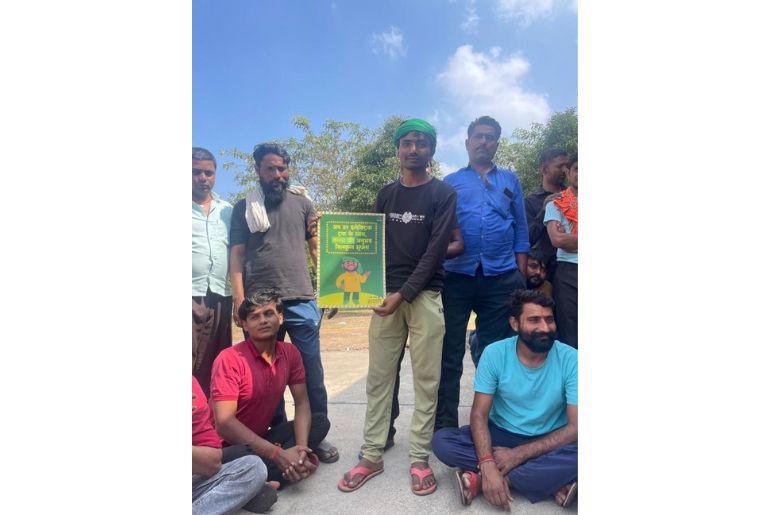As India pushes toward a cleaner and more sustainable transportation future, the Nayi Soch Ki Sawaari (NSKS) initiative has reached a major milestone, completing 100 awareness events across 28 cities in 8 states. The programme, aimed at engaging truck drivers, mechanics, and fleet operators, is driving awareness, acceptance, and adoption of electric trucks as the country transitions to zero-emission freight mobility.
Empowering the Trucking Community
Often overlooked in policy discussions, drivers and mechanics are central to India’s freight ecosystem. Through NSKS, the Centre of Excellence for Zero Emission Trucking (CoEZET) at IIT Madras is actively involving the community in the clean freight transition.
“Policy becomes real only when it meets the people,” said Mr. Ajithkumar TK, CEO, CoEZET.
“Our three-step process — Awareness, Acceptance, Adoption — ensures that drivers, mechanics, and fleet operators understand the trends, advantages, and challenges of truck electrification, and are equipped to embrace this shift confidently.”
Bridging the Knowledge Gap
Before NSKS began, only 16% of fleet operators believed electric trucks could be a viable alternative. Today, 68% see them as a credible option. Using regional languages, jargon-free communication, videos, games, informal discussions, and radio shows, the initiative has successfully engaged stakeholders at the grassroots level.
The programme emphasises hands-on insights, with participants like Selvasundaram, a suspension specialist in Bengaluru, noting:
“Electric trucks do not pollute and have lower operating costs. As the technology develops, feedback from users is being incorporated. Just as electric cars and bikes are becoming common, electric trucks are set to follow.”
Policy Support and Industry Readiness
India is strengthening its zero-emission trucking ecosystem through landmark initiatives such as
-
PM E-DRIVE subsidies
-
Production Linked Incentives (PLI) for EV manufacturing
-
Financing advisory models for fleet operators
-
Expansion of charging infrastructure and safety standards
These measures aim to decarbonise freight operations, reduce reliance on imported diesel, and position India as a global leader in clean transport solutions.
Driver Enthusiasm and Community Impact
NSKS field surveys reveal strong enthusiasm among drivers:
-
85% of drivers expressed willingness to try electric trucks
-
96% recognized environmental benefits of zero-emission vehicles
Fleet operators, while optimistic, cite upfront costs, charging infrastructure, and range limitations as concerns. Nevertheless, initiatives like NSKS are critical to building trust, awareness, and acceptance within the logistics ecosystem.
The Road Ahead
With the logistics industry projected to quadruple truck numbers by 2050 and a declining driver base, community-centric programs like NSKS are essential. By integrating drivers, mechanics, and fleet operators into the electrification journey, India can ensure an inclusive, just, and sustainable transition toward zero-emission trucking, achieving ambitious policy goals while strengthening the backbone of its freight sector.

